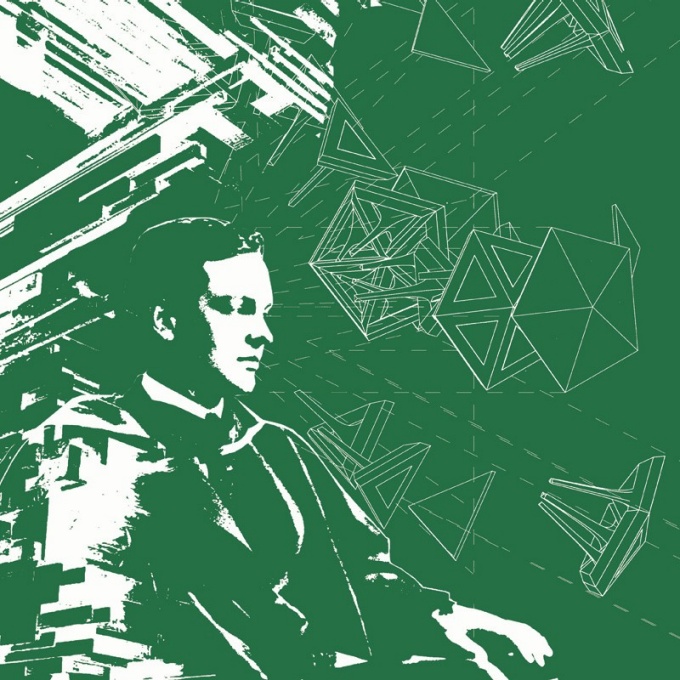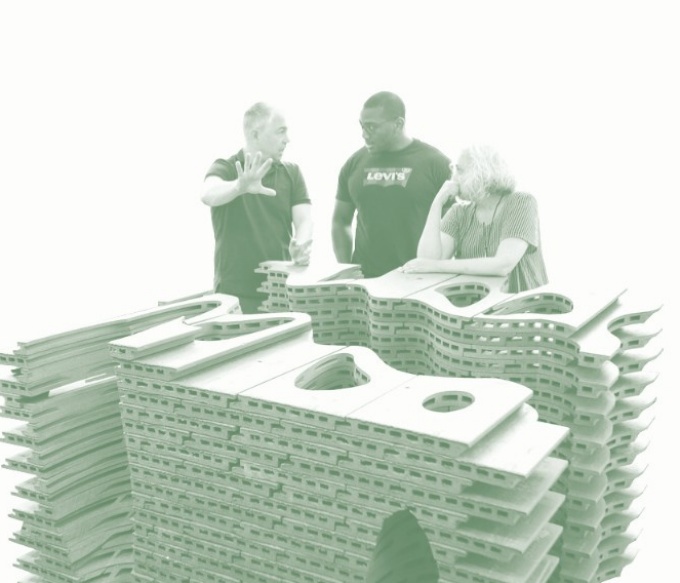Responding to Robert M. Hutchins
Theory & Adaptation

12.05.2019 | Hope Forgus | Elizabeth Giman | Peter Fillion | Joshua Fraazz |
Kimberly Johnston | Omar Khan | Brenna Reilly | Beth Tauke
Hope Forgus: Okay, so I think we’re going to just dive right into the broader question of this whole excerpt. How do you see this relationship between a more practical and a theoretical type of education playing out in the school?
Brenna Reilly: I think they drive each other. Theory drives practice, and I think that that is seen throughout the school. It’s a cycle. I know a lot of the first part of our program, for the three-and-a-half-year students in architecture, is very design-based and theoretical. With planning, we were able to have the practice. We had clients who we were working with and having that background and understanding of what went into that, which helps drive that practical part.
HF: Do you guys see similar things, in terms of the freshmen? When you come in, it’s super theoretical. They give you more of a broader base, and then it goes more into practical education.
Peter Fillion: Well, I definitely was shocked when I first came into the program because I was always good at figuring things out for myself, but they wouldn’t tell us anything in the studio. [laughter] It was really frustrating in the beginning, I told my friend, I was like, “I just have to eventually accept it, that they’re just not going to tell me anything and I’ll have to figure it out,” and so then once I got to that point and I was like, “Oh wow. Now I can think about all these things in a different way, which is really cool.”
Kimberly Johnston: Yeah, at first, I thought were going to jump right into architecture, but no, the first day we’re drawing Abraham Lincoln under a piece of paper blindly, and I was like, “How does this involve everything?” [laughter] In the end, all this theoretical practice of design all added up. Now I understand space, and I understand how to creatively format, I guess. [chuckle]
Design is a different kind of knowledge and i think it works now much more, because you're projecting to do something in the world. It’s very action focused, design. somehow, the knowledge you gain is to act in the world.
- Omar Kahn
Beth Tauke: With some sort of logic?
KJ: Yeah.
BT: Particularly, with that curriculum.
BR: How do you see that playing out on the development side of the classes you’ve taken?
Joshua Fraazz: So, real estate is way more practical than theoretical.
BR: You don’t say.
JF: Yeah, [laughter] so... I have a bachelor’s in Environmental Design from UB. It was too theoretical — it was not practical enough. You couldn’t figure out how to actually implement things because they didn’t teach us anything about financing whatsoever. So, I felt unprepared to get a job at that point from Environmental Design so. I have a Master’s Degree now in Real Estate, which is completely different, where financing is really the most important part. Design comes secondary in Real Estate, but even still, we’re not learning enough financing. You could just never learn enough about finance. That’s a little bit lacking in Real Estate right now. It’s important because my background is different. I have Environmental Design, but I also have an undergraduate degree in Art, and I am a practicing artist. I have a lot of theoretical background from undergrad, so that has helped in the practical Master’s part.
KJ: I was talking to a realtor during one of the first weeks of school, and he was saying “Why do architects and engineers revert back to the basics and make simple houses that are just for the financial value.” And I was like, “It’s because, after a while, people just think about the finances, and they don’t take the time to think about theoretical design.”
BT: Can I switch the subject a little? I’m interested in this second part of the quote, where he says, “Habituation to routine will be valueless or even a handicap. What is wanted is the ability to face new situations, to solve new problems, and to adjust to new complications.” I would say I think that’s a false binary, in that developing habits doesn’t mean that one is not willing to change and that one doesn’t know how to adapt and how to change. And so, this is a strong dramatic statement, but I think that I would want to rethink that, so that one of the habits that we form is a way of thinking that would allow us to develop a habit of critical thinking, allowing you to adapt to change and to solve the problems and adjust to complications. I think it’s something that one develops over time, and so I would call it a kind of a habit, not necessarily repetition without change but a dynamic habit that changes as you get deeper into it.
I really feel that I just have to disagree with the statement. I think habit is very important. Your habits are what you spend your time on, how you develop yourself, what you’re thinking about, and those are not antithetical to change.

Moderators
HOPE FORGUS: MArch Student
ELIZABETH GILMAN: MArch Student, Fred Wallace Brunkow Fellow (2019 - 2020), Editor
Participants
PETER FILLION: BS Arch Student, Freshman
JOSHUA FRAASS: MSRED Student
KIMBERLY JOHNSTON: BS Arch Student, Freshman
OMAR KHAN: Associate Professor - Department of Architecture
BRENNA REILLY: MArch / MUP Student
BETH TAUKE: Associate Professor - Department of Architecture